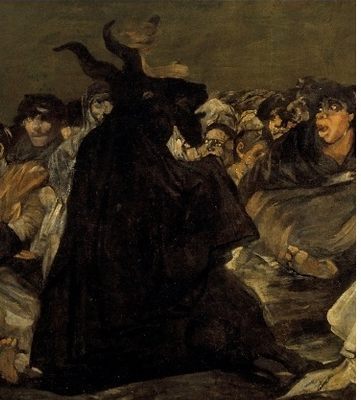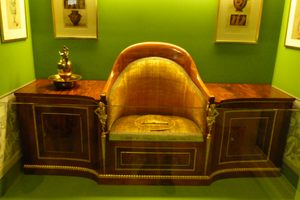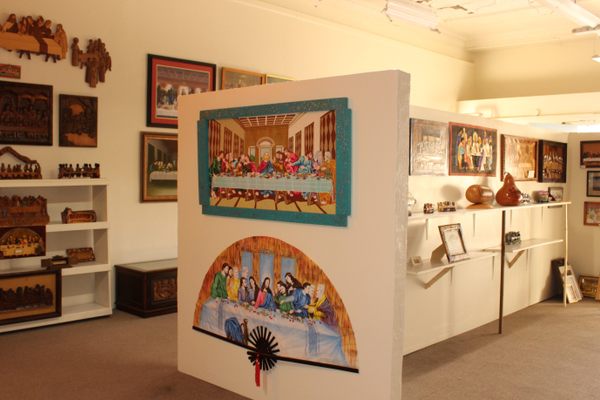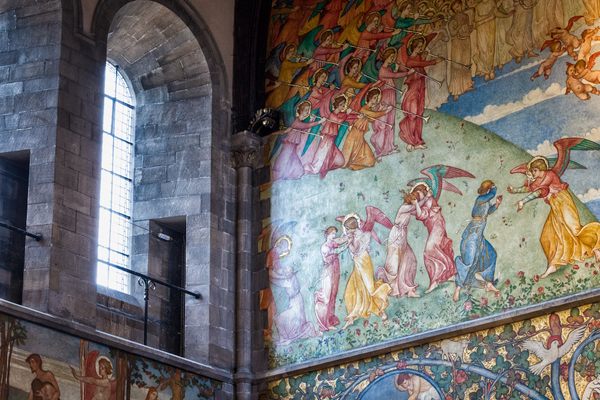About
In one of the more obscure and less-visited galleries of Madrid's world-famous Museo Nacional Del Prado, the curious visitor can come face to face with a singularly bewitching painting.
Witches' Sabbath (The Great He-Goat) is one of the haunting “Black Paintings” artist Francisco Goya created during the later years of his life. Goya, who by then was nearly deaf and suffering from profound depression, retreated into the isolation of his studio and covered his walls with these macabre masterpieces. This particular creation is a deeply disturbing painting that has the power to shock, even though it is centuries old.
The large brooding figure of a black-cloaked billy goat sits wreathed in shadow at the forefront of the painting bleating something known only to the painter’s mind to an enraptured audience of crones, some of whom are bowing reverently and others that whisper in muffled agreement. It should come as no surprise to most that the goat, or the Gran Cabrón as Goya named him, symbolically represents the figure of the devil and that the crones are actually a sabbath of witches.
But what can escape the viewer is that this haunting painting is not actually meant to be taken literally as a depiction of the supernatural. This is because this masterpiece is, in fact, thought to be a satirical criticism of what Goya saw as the ugly and dark side of the human condition and the depravity of post-Napoleonic war society that surrounded him.
Related Tags
Know Before You Go
The painting can be found in the lower floors of the museum in room 067. To avoid the frustration of long lines and waits to enter, not to mention the steep entrance fee, it's a good idea to visit the museum on a Sunday between 5 p.m. and 7 p.m. when it is not only free, but there are fewer people.
Community Contributors
Added By
Published
October 22, 2018































